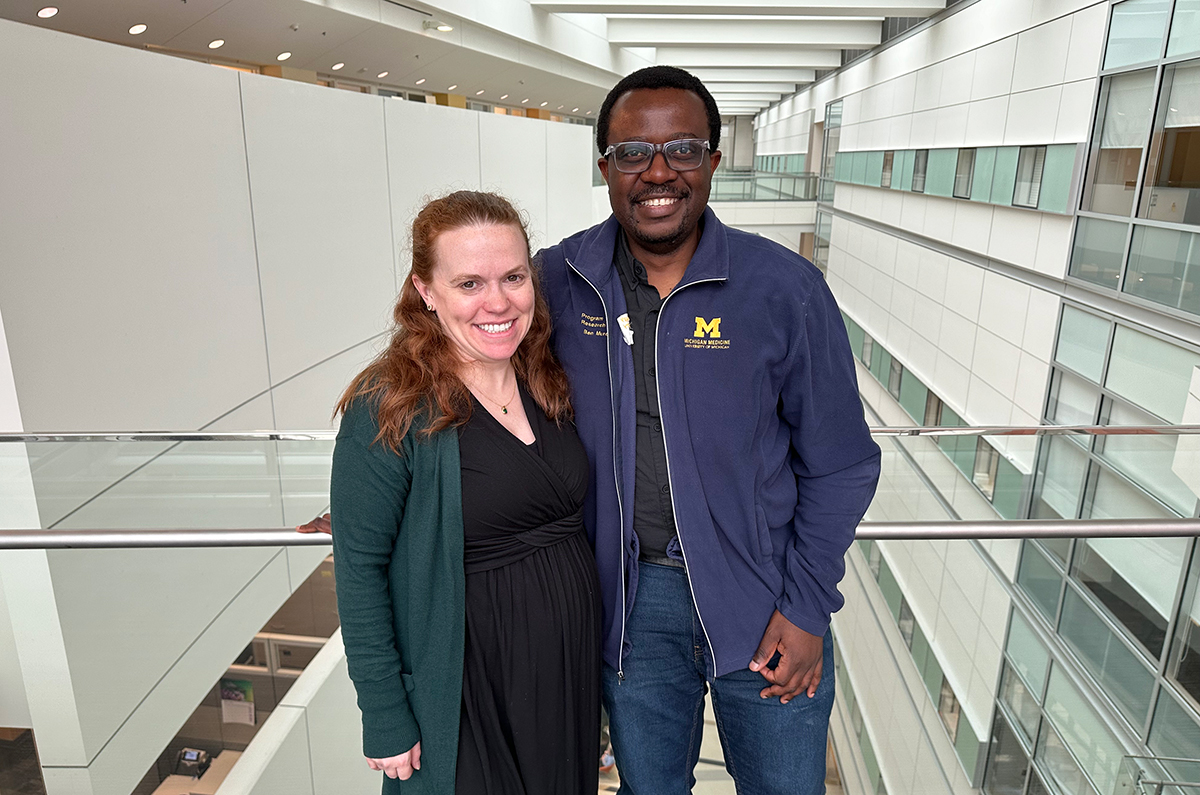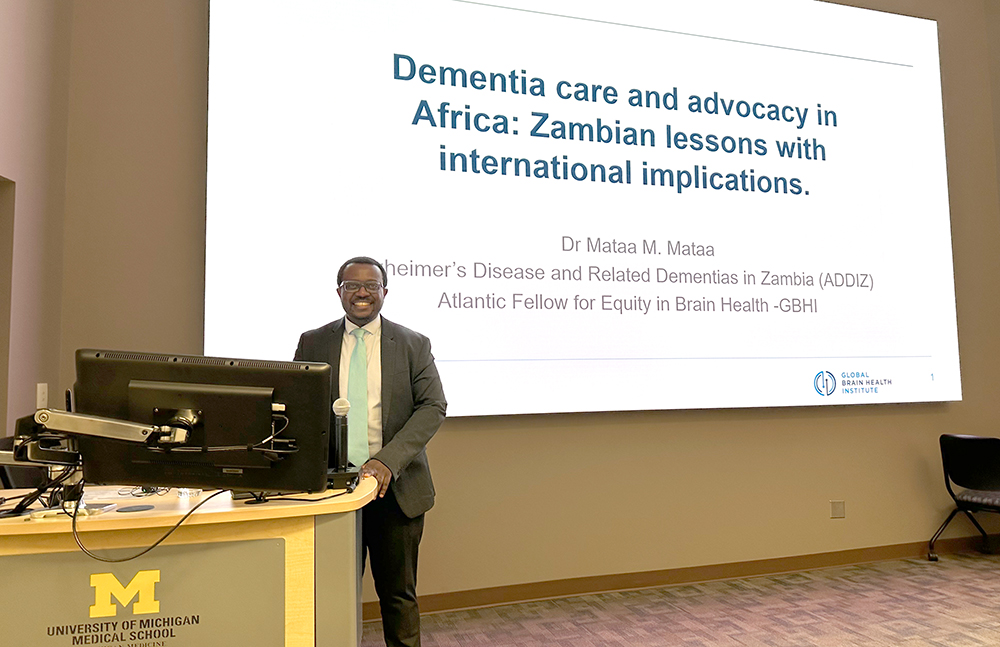
Mataa M. Mataa, a neurologist and the Medical Superintendent at Chipata Level One Hospital, in Lusaka, spent three days at Michigan Medicine in April on the invitation of Assistant Professor of Neurology Melissa Elafros, Dr. Mataa’s collaborator in the Zambian Cohort of Health Aging and Dementia (Z-CHAD) Project.
“When you think about the demographics of my country, it’s a very young population. But this is changing quickly, not just in Zambia but across the continent,” said Mataa, MBCHB. “Across east and southern Africa, we expect a 340% increase in the number of people living with dementia in the next 25 years.”
Global REACH is currently accepting Partnership Development Grant proposals.
Applications are due May 3, 2024.
He spoke about Z-CHAD to more than 100 colleagues from Michigan Medicine, as well as Wayne State University and Michigan State, who turned out both in-person and online for an April 10 Neurology Department Grand Rounds presentation. The event was the culmination of a busy three days at Michigan Medicine which saw Dr. Mataa meet with more than a dozen faculty engaged in global health at Michigan Medicine and the broader U-M community. He was able to sit down with Neurology Department Chair Dawn Kleindorfer and other Neurology faculty, as well as leaders in Psychiatry, Ophthalmology, Nursing and Public Health.
Global REACH has supported Mataa’s work with Dr. Elafros through a Partnership Development Grant, and the collaborators have also received funding through the U-M Center to Accelerate Population Research in Alzheimer’s and the African Studies Center. While Elafros has been in Zambia many times, this marked Mataa’s first visit to Ann Arbor.
“It was an amazing few days, meeting and talking with all of these people. There are colleagues back in Zambia who have diverse interests and I feel like I can make connections between my colleagues and people here who have similar interests,” Mataa said.

Mataa’s Z-CHAD program aims to ramp up dementia care in a context where currently few resources are available; he is one of only 12 neurologists in the country. A first step is a population-based study to determine the prevalence of dementia and common risk factors as well as the burden on household caregivers in Lusaka.
“We are starting with the big, simple questions: how many people are living with dementia right now? What are the challenges?” said Mataa. “We like to think of these challenges as opportunities, because we can start grasping for low-hanging fruit. That is the work that Melissa (Elafros) and I and our colleagues are engaged in.”
“She has such an excellent understanding of how to organize and run research projects,” he continued. “And she has been so helpful bringing in people from her own network—not just from U-M, but in Zambia as well because she’s been engaged for so long and knows so many people.”
To date, the Z-CHAD study has obtained consent from nearly 300 participants and, despite the early stage, is already helping the team draw some conclusions about the prevalence of dementia and demographic details. They are working to expand the survey to communities outside of the capital city for a more complete picture of the needs among different populations.
“I really appreciate being able to visit here and meet in-person with some of the people who have been supportive of this project. It is important that people know how impactful this work is,” Mataa said. “While we are in initial stages, the impact is already being felt back home in Zambia.”
